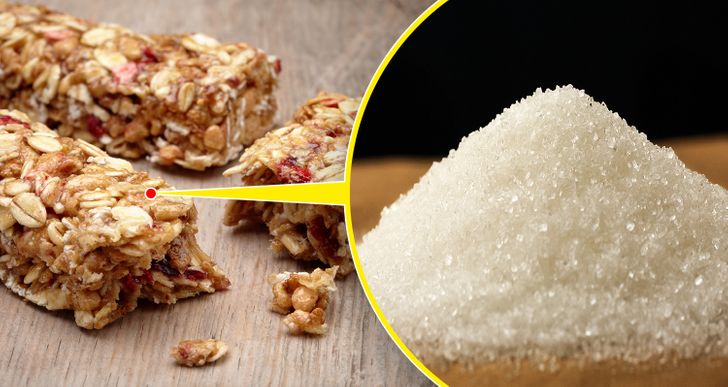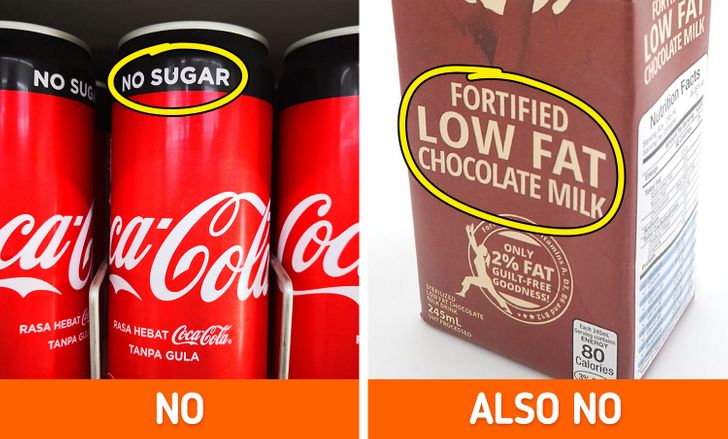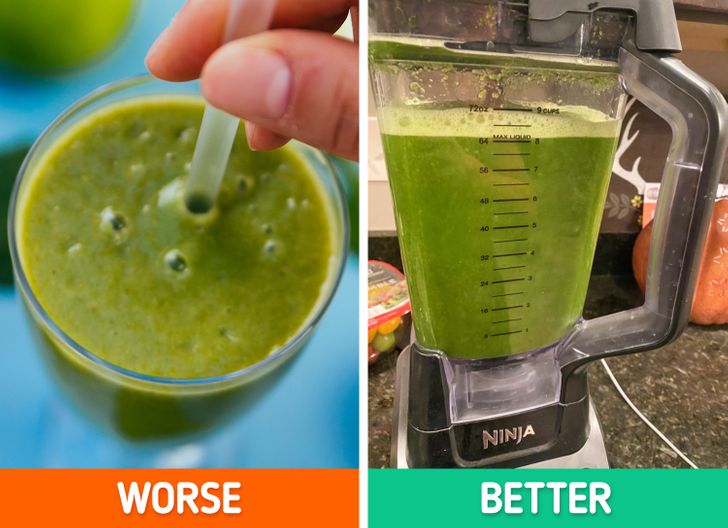In today’s world of clean eating and organic lifestyles, consumers are more conscious than ever about the quality of the food on their plates. Renowned nutritionists have spoken out, identifying several common food products that can detract from optimal health. In this comprehensive article, we explore the seven products that these experts warn against, alongside expert opinions, we provide external references to reliable sources like Healthline and Mayo Clinic to ensure credibility and trustworthiness.
With rising awareness about nutritional quality, many everyday products are being scrutinized for hidden additives, misleading labels, and poor nutritional content. Let’s delve into the details behind these food choices, why nutritionists advise against them, and what alternatives you can consider for a healthier diet.
Cereal Bars: Hidden Sugars and Refined Ingredients

Cereal bars have long been marketed as a convenient, on-the-go breakfast or snack option. However, many nutritionists point out that these bars often contain more sugar and refined carbohydrates than consumers realize. Even those marketed as “healthy” can be loaded with additives designed to enhance taste and texture at the expense of nutritional value.
Why They’re Problematic:
Excessive Sugar: Many cereal bars use high-fructose corn syrup or other sweeteners that spike blood sugar levels.
Low Fiber Content: Despite the appearance of being a wholesome snack, many of these bars lack sufficient fiber.
Artificial Additives: Preservatives and flavor enhancers may mask the lack of natural ingredients.
Nutrition experts suggest that if you’re looking for a nutritious, filling snack, consider alternatives like fresh fruit with a handful of nuts or a homemade granola bar where you control the quality of ingredients. For further reading, check out this detailed analysis on cereal bars by Healthline that discusses hidden sugars and nutritional pitfalls.
Big-Brand Whole Wheat Bread: A Marketing Mirage

Whole wheat bread from well-known brands might appear to be a healthy staple, but a closer look at the ingredient list often reveals a slew of unwanted additives. Many big-brand breads are enriched with preservatives, added sugars, and sometimes even partially hydrogenated oils.
The Hidden Concerns:
Refined Grains Disguised as Whole Grains: Some products are not truly whole grain but are processed to meet regulatory labeling standards.
Added Sugars and Fats: These ingredients can contribute to inflammation and unwanted weight gain, particularly for those watching their calorie intake.
Chemical Preservatives: While these extend shelf life, they may compromise the natural benefits of whole grains.
For individuals aiming for a healthier lifestyle, consider baking your own bread or choosing artisanal bakeries that focus on natural, unprocessed ingredients. Additional insights on whole wheat bread and its nutritional drawbacks can be found on Mayo Clinic’s nutrition section.
Products Labeled “Low-Fat” or “Sugar-Free”: Not Always Healthier

Food packaging can be misleading, and many products labeled as “low-fat” or “sugar-free” are designed to give the impression of a healthier option while compensating with artificial ingredients and chemicals. These products can often lead to unintended dietary pitfalls.
Key Points of Concern:
Compensatory Ingredients: Removing fat or sugar may result in higher amounts of sodium, artificial sweeteners, or other chemical additives.
Taste Alterations: The lack of natural fats can compromise flavor, leading consumers to add extra condiments that may not be healthful.
Impact on Satiety: Fat plays an essential role in satiety, meaning low-fat products might not keep you full as long, potentially leading to overeating.
Nutritionists recommend reading labels carefully and focusing on whole, unprocessed foods rather than relying solely on marketing claims. For a balanced view on this topic, refer to the consumer guides available on WebMD.
Processed Meats: The Silent Culprit Behind Health Issues

Processed meats, including deli slices, bacon, and sausages, have been linked to a range of health concerns, from cardiovascular diseases to cancer. Despite their convenience and flavor, nutritionists strongly advise against regular consumption due to the presence of preservatives like nitrates and nitrites.
Why Processed Meats Are Harmful:
- High Sodium Content: Excess sodium can contribute to high blood pressure and other cardiovascular issues.
- Preservative Concerns: Nitrates and nitrites used in processing can form harmful compounds in the body when consumed in large quantities.
- Link to Chronic Diseases: Numerous studies have found correlations between processed meat consumption and an increased risk of colorectal cancer.
For those seeking healthier protein sources, consider lean meats, fish, or plant-based proteins that offer essential nutrients without the added risks. To learn more about the dangers of processed meats, explore research on Harvard Health Publishing.
Rice Cakes: Misleading Light Snack with Little Nutritional Value

Rice cakes have earned a reputation as a low-calorie snack, but their nutritional profile may not support the claims made by popular diet trends. While they seem like a guilt-free option, their refined carbohydrate content often leaves you hungry and craving more.
The Drawbacks:
- Low Satiety: The high glycemic index of rice cakes means that they do little to satisfy hunger, potentially leading to overeating later.
- Lack of Nutrients: Rice cakes are often low in protein and fiber, making them a poor choice for a balanced snack.
- Potential Additives: Some brands add salt and flavor enhancers that negate their otherwise simple ingredient list.
If you’re aiming for a more balanced snack that helps sustain energy levels, try whole grain crackers or nut-based crisps that provide protein, fiber, and healthy fats. Detailed comparisons of snack alternatives can be found on Eat This, Not That.
Food Coloring – Even the Least Harmless Ones: The Hidden Danger in Your Snacks

Food coloring may seem like a minor ingredient, but even natural food dyes can have unintended health effects. Some nutritionists raise concerns about the cumulative impact of these additives, especially when consumed regularly over long periods.
Concerns Over Food Colorings:
- Allergic Reactions: Some individuals experience allergic responses to certain food dyes, even if they are considered “natural.”
- Behavioral Impacts: There have been studies suggesting that artificial food colors could affect behavior and attention, particularly in children.
- Potential Toxicity: While many food dyes are approved by regulatory agencies, long-term exposure—even in small amounts—can be a concern for some health professionals.
To minimize exposure, opt for foods that use natural coloring derived from fruits, vegetables, and spices. For further research on food additives, consult the resources available on the FDA website.
Store-Bought Green Vegetable Juice: The Myth of “Healthy” Convenience

While green vegetable juices are often promoted as an easy way to consume your daily servings of vegetables, many store-bought varieties fall short of expectations. The process of juicing can strip away vital nutrients and fiber, while added sugars and preservatives further compromise their health benefits.
What to Watch Out For:
- Lack of Fiber: Juicing removes much of the fiber that is essential for digestion and long-term health.
- Added Sugars: Many commercial juices include extra sugars to enhance flavor, undermining their nutritional integrity.
- Nutrient Degradation: The processing methods used can lead to a reduction in essential vitamins and antioxidants, making them less beneficial than freshly prepared juices.
For optimal health, nutritionists recommend making your own juice at home or opting for whole fruits and vegetables instead. For more insights on the benefits of whole produce versus processed juices, check out studies from Harvard T.H. Chan School of Public Health.
Embracing a Healthier Lifestyle: The Road to Clean Eating
The guidance provided by nutritionists is clear: avoiding certain processed and convenience foods is a key step toward achieving optimal health. Each of the seven food products discussed above highlights the broader issue of misleading marketing and the need for transparency in food labeling. The modern consumer is inundated with choices, and making informed decisions can be challenging.
Tips for Clean Eating:
Focus on Whole Foods: Prioritize fruits, vegetables, whole grains, and lean proteins that have minimal processing.
Read Labels Carefully: Understand what goes into your food by scrutinizing ingredient lists and nutritional facts.
Cook at Home: Preparing meals from scratch can significantly reduce the consumption of harmful additives and preservatives.
Stay Informed: Keep up with reliable sources such as WebMD and Mayo Clinic to stay updated on the latest nutritional research and recommendations.
Incorporating these practices can not only improve your overall health but also potentially reduce medical expenses in the long run.
Integrating Expert Opinions and Scientific Research
The advice provided in this article is backed by extensive research and expert opinions from top nutritionists. These professionals emphasize that while occasional indulgence might not be harmful, regular consumption of these questionable products can lead to adverse health effects such as weight gain, chronic inflammation, and even serious diseases like cancer and cardiovascular issues.
Scientific Evidence:
Studies have shown that diets high in processed meats are associated with an increased risk of chronic diseases.
Research on food additives indicates that even “natural” ingredients can have unintended side effects when consumed in excess.
Consumer studies on cereal bars and rice cakes reveal that the low satiety factor can contribute to overeating, undermining weight loss efforts.
To validate these findings, it’s useful to refer to peer-reviewed journals and authoritative sites such as The Journal of Nutrition and PubMed. These sources provide comprehensive data supporting the recommendations discussed in this post.
The Importance of Making Informed Food Choices
In the age of information, understanding the impact of your dietary choices is more critical than ever. With trends leaning towards organic, gluten-free, and clean eating, consumers are demanding transparency and quality from the food industry. Nutritionists play a crucial role in guiding these choices, offering advice that is rooted in both scientific research and practical dietary wisdom.
By avoiding products laden with sugars, preservatives, and artificial additives, you can safeguard your long-term health and potentially improve your overall quality of life.
Conclusion: A Pathway to Better Health Through Conscious Eating
In conclusion, the insights shared by nutritionists provide a compelling case for re-evaluating everyday food choices. Whether it’s ditching cereal bars for whole, natural snacks or rethinking your reliance on processed meats and store-bought juices, every small decision adds up to significant health benefits over time. By embracing clean eating and prioritizing whole foods, you invest in a future marked by improved health, higher energy levels, and a reduced risk of chronic diseases.
As you navigate the world of food marketing and nutritional claims, remember to consult reputable sources and remain skeptical of products that seem too good to be true. In a market flooded with misleading labels and additives, making informed choices is the best strategy for long-term well-being.
For further reading and ongoing updates in nutrition science, consider bookmarking reliable sources like Healthline, Mayo Clinic, and Harvard Health Publishing. These platforms not only offer valuable insights but also help you stay abreast of emerging trends in healthy eating.









